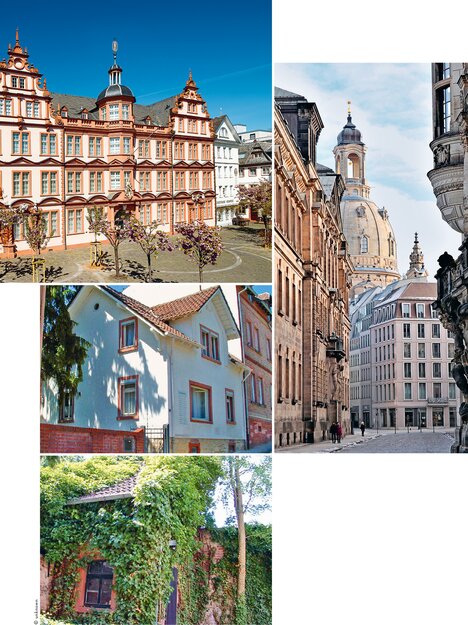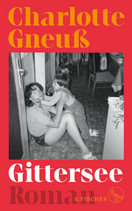Writing Away from Home

The writer Charlotte Gneuß lives in Berlin, but she finds it easier to write elsewhere – particularly in the countryside. ‘I find the best words in places where there are hardly any words being spoken around me,’ she says. Gneuß was awarded a grant for a writing residency in a village in Lower Saxony, where she worked on her debut novel Gittersee. It was published in 2023 to great acclaim. ‘The idea of going somewhere where nobody knows you is very appealing to me as a writer. It often enables me to write passages I wouldn’t have written otherwise, or which would have taken a lot more effort to write because I would have had to create the space for myself first. I really need solitude in order to write,’ the author explains.
Charlotte Gneuß has a special connection to Dresden. ‘Dresden is where I started writing. Many of my texts began life in that city. I feel as if I’ve lost something there, in a very personal sense, which I have to go looking for,’ she says. Her parents lived in the city on the Elbe before the Wall came down, and Gneuß herself studied social work and worked with asylum seekers in Dresden.
Dresden is one of the most renowned writing residencies, but far from the only one. Many cities and towns boast residency programmes. Apart from Dresden, the best-known residencies are in Frankfurt’s Bergen-Enkheim district, in the spa town of Baden-Baden, in Rhineland-Palatinate’s state capital Mainz, and in the town of Rheinsberg in Brandenburg. Eisenbach in the Black Forest has a village residency, Beeskow in Brandenburg a castle residency, Flensburg in northern Germany had a crime writing residency, and the North Sea island of Sylt an island residency. But one thing all the residency programmes have in common is that they enable writers to enjoy a period of financial independence.
Nino Haratischwili wants to use the residency to start work on a new novel. She already has some initial notes and a structure. ‘Being able to work at a different desk helps me – it’s much more intensive and effective. I find it easier to write away from home – there are fewer distractions. But it’s also difficult for me because I have two young children, so my time is not entirely my own.’ For this reason Haratischwili plans to commute between Berlin, where she lives with her children, and Bergen-Enkheim.

Gittersee

Lack Of Light (Das mangelnde Licht)

The couple of the century (Das Liebespaar des Jahrhunderts)
About
Holger Heimann is a literary critic and works for various newspapers and broadcasters. He lives in Berlin.




